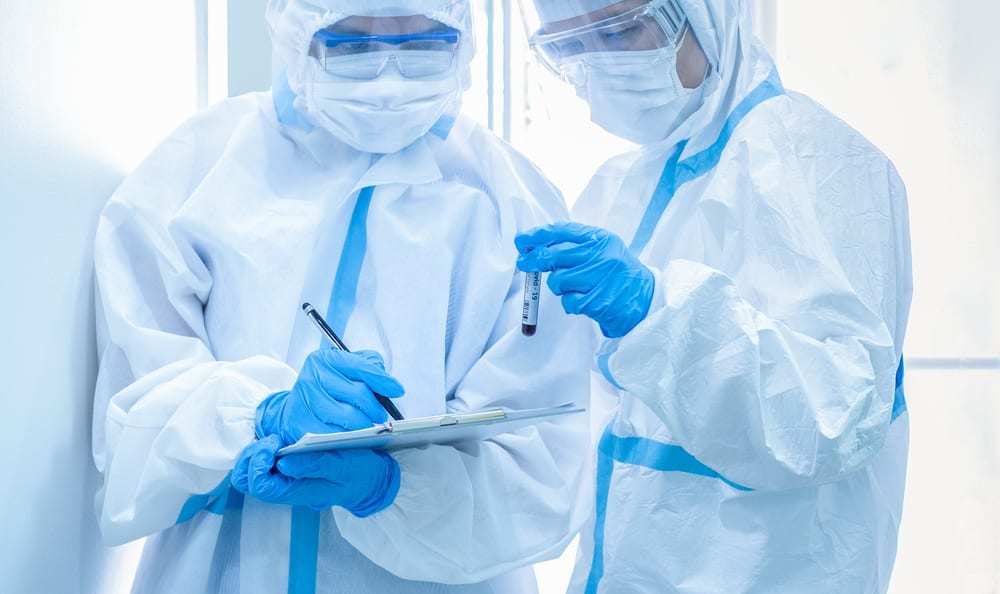The spread of the coronavirus is affecting every facet of the pharmaceutical industry — including clinical trials that are currently underway or scheduled for the near future. Approximately 40,000 clinical trials are operating at any given time; these trials take place at thousands of sites, with tens of thousands of investigators and hundreds of thousands of trial participants.
Possible COVID-19-related Challenges
Challenges to planned or ongoing clinical trials may include the following:
- Travel limitations due to quarantine or other safety concerns
- Testing site closures
- Quarantines and infections of site personnel
- Disruptions to the investigational product supply chain
These factors may create difficulties in meeting protocol-specified procedures laid out at the time of the study design and approval. The Food and Drug Administration (FDA) recognizes that unavoidable circumstances will require deviations from these procedures.
Considerations for Clinical Trials
The Department of Health and Human Services (HHS) aims to take every precaution to avoid impacts from the current global health emergency on clinical trials. But since many trials will unavoidably be interrupted — or, at the very least, will require their protocols to be amended — the FDA has published a set of guidelines on the conduct of clinical trials during this time.
This advice is targeted toward Institutional Review Boards (IRBs)/Independent Ethics Committees (IECs), trial sponsors and investigators. These guidelines are nonbinding recommendations, going into implementation immediately without the customary comment period. They will be subject to comment going forward.
The FDA’s aim is to protect the safety of human trial participants, minimize risks to the integrity of ongoing trials during the pandemic, and encourage the maintenance of good clinical practice (GCP). GCP ensures that a trial is conducted with a high standard of ethics and quality data collection, leading to scientifically sound outcomes and observations.
FDA Guidelines
- Ensuring the safety of trial participants is paramount. All sponsors and investigators should take the circumstances into consideration and act accordingly. Decisions may include the discontinuation of recruitment, changes to patient monitoring, or the use of investigational products.
- Trial sponsors may consult with investigators and IRBs on a case-by-case basis as to whether each participant’s safety, welfare, and rights are served by continuing the study.
- In cases where participants are not able to visit the regular clinic, safety assessments should be modified to include virtual visits, phone calls, or alternative locations.
- In cases where the trial participant no longer has access to the investigational product or site, additional safety monitoring may be required; sponsors may consider withdrawing that participant from active treatment.
- Existing processes may need to be modified or new processes put in place. It may be appropriate to delay some assessments or consider the possibility that the study cannot be conducted at this time.
- If a COVID-19 screening is mandated for any person involved in the trial, it does not need to be reported as a change in protocol.
- IRBs and IECs should be engaged and consulted early and often by trial sponsors. If there are any recommended changes to protect the health of trial participants, they do not need to be preapproved — but must be reported after the change is made.
- To the extent possible, alternative processes in the trial should be consistent with protocol. All contingency measures, and the reasons for those measures, should be documented. How COVID-19 led to those changes, the duration of the changes, and the impact on participants should be documented and reported.
- Missed visits or changes in study visits may lead to missing information. Case report forms should explain the basis of that lack of information, including its relation to COVID-19.
- Self-administered investigational products are amenable if scheduled clinic visits prove problematic.
- Protocol changes related to collecting efficacy endpoints (e.g., delays in assessments, virtual assessments, and alternative collections of specimens) should be done in consultation with the appropriate FDA review board. In cases where efficacy endpoint data cannot be collected at all, documentation should be provided, and the appropriate FDA review division should be consulted if protocol changes mean changing data management or statistical analysis plans.
- Remote monitoring programs are acceptable in cases where on-site monitoring visits become impossible.

Clinical Trials Impacted by COVID-19
Clinical study reports for trials impacted by COVID-19 should include specific details and actions, including those outlined below.
- Any contingency measures taken to manage study conduct during disruptions.
- A list of participants affected by the COVID-related disruption. Each participant should be identified in documentation by their unique subject number identifier, the site, and the description of how their participation was impacted.
- Analysis and discussions that address the effect of the contingency measures, such as patient discontinuation or alternative procedures, on the safety and efficacy results.
Impacts for Today and Tomorrow
The FDA is relying heavily on significant efforts by sponsors, clinical sites, and IRBs/IECs to protect the data integrity and participant safety of trials in keeping with GCP. All efforts should be documented to clearly delineate how the pandemic has affected clinical trials.
COVID-19 will likely have lasting effects on how clinical trials are planned and executed. Pivoting to telemedicine and minimizing touchpoints during clinical trials may be a sustainable solution, especially for trial participants with health vulnerabilities.
Are you looking for a CRO to assist with your preclinical or clinical drug development related to the novel coronavirus or COVID-19? QPS has CLIA-certified and GLP-compliant laboratories ready to fast-track your novel coronavirus and COVID-19 RT-qPCR/QPCR and Serological Assays and vaccine development programs. Since 1995, QPS has provided discovery, preclinical, and clinical drug development services. An award-winning leader focused on bioanalytics and clinical trials, QPS is known for proven quality standards, technical expertise, a flexible approach to research, client satisfaction, and turnkey laboratories and facilities. For more information, visit www.qps.com/coronavirus or email [email protected].





